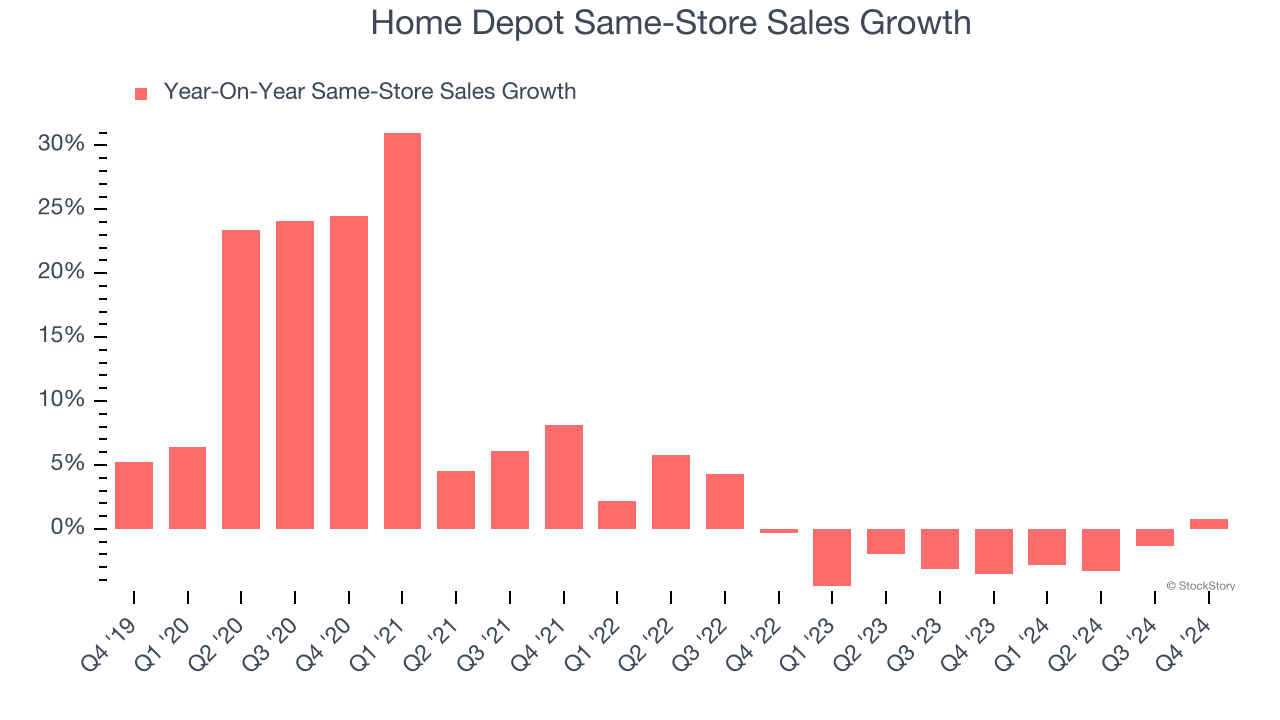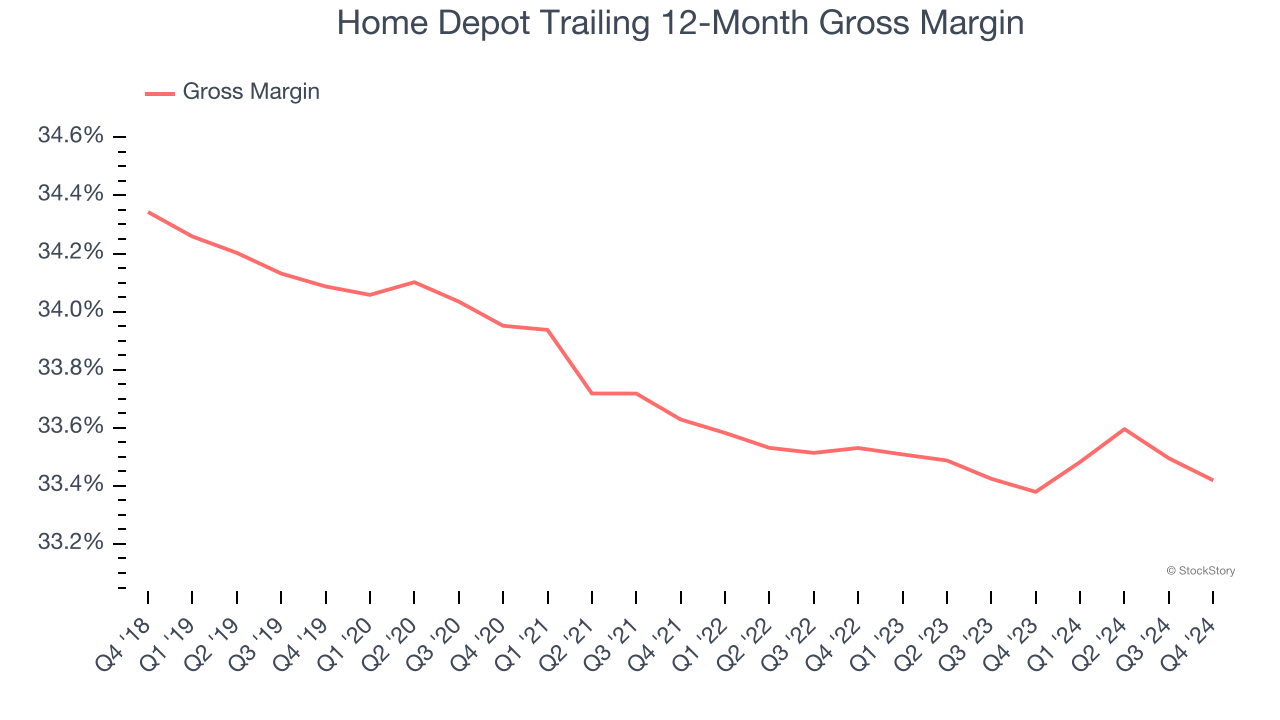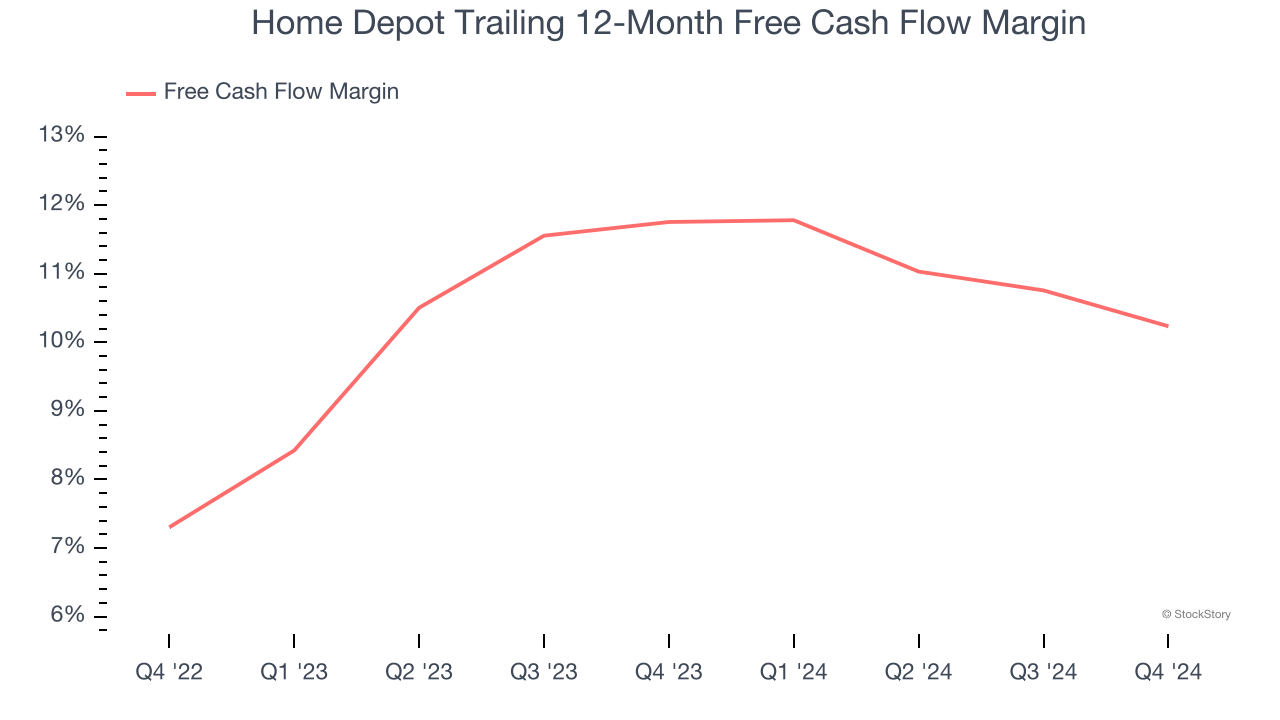
Over the last six months, Home Depot’s shares have sunk to $363.34, producing a disappointing 9.1% loss while the S&P 500 was flat. This may have investors wondering how to approach the situation.
Is there a buying opportunity in Home Depot, or does it present a risk to your portfolio? Check out our in-depth research report to see what our analysts have to say, it’s free.
Even though the stock has become cheaper, we're swiping left on Home Depot for now. Here are three reasons why you should be careful with HD and a stock we'd rather own.
Why Is Home Depot Not Exciting?
Founded and headquartered in Atlanta, Georgia, Home Depot (NYSE: HD) is a home improvement retailer that sells everything from tools to building materials to appliances.
1. Shrinking Same-Store Sales Indicate Waning Demand
Same-store sales is a key performance indicator used to measure organic growth at brick-and-mortar shops for at least a year.
Home Depot’s demand has been shrinking over the last two years as its same-store sales have averaged 2.5% annual declines.

2. Low Gross Margin Hinders Flexibility
At StockStory, we prefer high gross margin businesses because they indicate pricing power or differentiated products, giving the company a chance to generate higher operating profits.
Home Depot’s gross margin is slightly below the average retailer, giving it less room to invest in areas such as marketing and talent to grow its brand. As you can see below, it averaged a 33.4% gross margin over the last two years. That means Home Depot paid its suppliers a lot of money ($66.60 for every $100 in revenue) to run its business. 
3. Free Cash Flow Margin Dropping
Free cash flow isn't a prominently featured metric in company financials and earnings releases, but we think it's telling because it accounts for all operating and capital expenses, making it tough to manipulate. Cash is king.
As you can see below, Home Depot’s margin dropped by 1.5 percentage points over the last year. This decrease warrants extra caution because Home Depot failed to grow its same-store sales. Its cash profitability could decay further if it tries to reignite growth by opening new stores.

Final Judgment
Home Depot’s business quality ultimately falls short of our standards. After the recent drawdown, the stock trades at 23.1× forward price-to-earnings (or $363.34 per share). This valuation tells us it’s a bit of a market darling with a lot of good news priced in - we think there are better stocks to buy right now. Let us point you toward one of our top digital advertising picks.
Stocks We Would Buy Instead of Home Depot
The elections are now behind us. With rates dropping and inflation cooling, many analysts expect a breakout market - and we’re zeroing in on the stocks that could benefit immensely.
Take advantage of the rebound by checking out our Top 6 Stocks for this week. This is a curated list of our High Quality stocks that have generated a market-beating return of 175% over the last five years.
Stocks that made our list in 2019 include now familiar names such as Nvidia (+2,183% between December 2019 and December 2024) as well as under-the-radar businesses like Comfort Systems (+751% five-year return). Find your next big winner with StockStory today for free.




